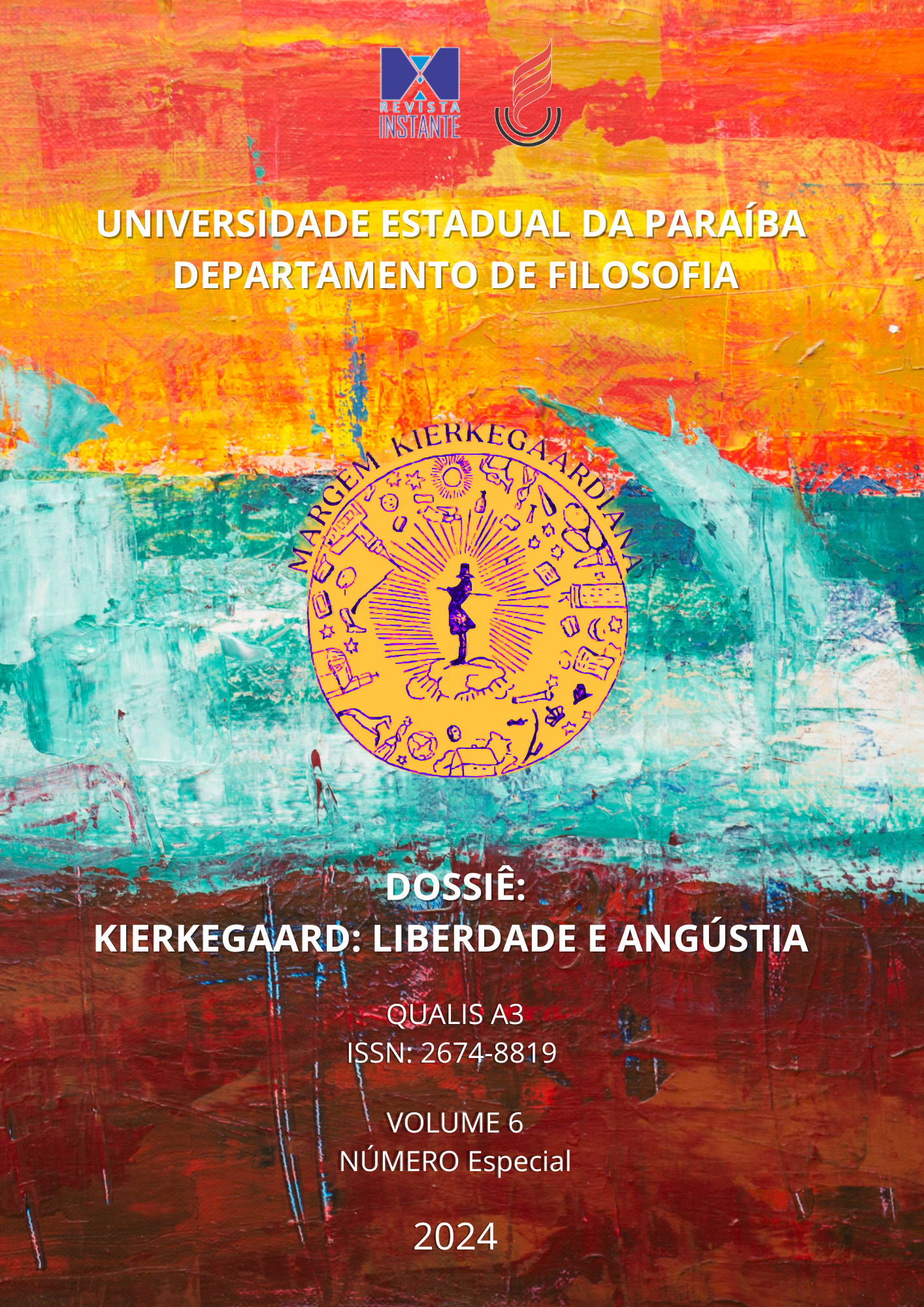KIERKEGAARD AND CLINICAL PSYCHOLOGY:
REFLECTIONS ABOUT COWARDICE, PRIDE AND FREEDOM
Keywords:
Cowardice. Pride. Anguish. Freedom. Existential Psychological Clinic. Clinical PsychologyAbstract
This text aims to reflect the relationship between cowardice, pride and anguish in the light of Kierkegaard’s philosophy, in order to elucidate possible paths for the action of existential clinical psychology based on his thinking. By addressing the prevalence of cowardice and the search for distractions in his time, Kierkegaard resonates with contemporary times, indicating the intensification of this issue in today’s society. We will begin by clarifying how he understands the relationship between anguish and cowardice and pride. Next, we will examine your view on cowardice linked to pride and its manifestations in existence. Finally, we will discuss how these reflections can unfold in psychological clinical practice. The understanding and appropriation of the concepts of cowardice, pride and anguish by existential clinical psychology, as presented by him, become necessary for the psychologist to support a path so that the patient can get closer to himself in existence. Kierkegaard points out two directions for the way out of cowardice and pride, in anguish in the face of freedom: speech and deliberation. Both paths can be helped by the psychologist, who has the necessary difference to analyze, identify and help the analysand to get closer to themselves and truly know themselves.
References
FEIJOO, A. M. L. C.; PROTASIO, M. M. Análise Existencial: uma psicologia de inspiração kierkegaardiana. Arquivos Brasileiros de Psicologia, v. 63, n. 3, pp. 72-88, 2011.ISSN 1809-5267.
KIERKEGAARD, S. A. Dezoito Discursos Edificantes. Trad.: Elisabete M. de Sousa. Lisboa: Relógio D’Água, 2023. Originalmente publicado em 1844.
__________. Escritos de Søren Kierkegaard Volumen 5: Discursos Edificantes. Tres discursos para ocasiones supuestas. Trad.: Darío González. Madri: Editorial Trotta, S. A., 2010. Originalmente publicado em 1844.
__________. O Conceito de Angústia. Trad.: Valls A. L. M. Petrópolis: Vozes, 2016. Originalmente publicado em 1844.
__________. Ponto de Vista Explicativo da Minha Obra como Escritor. Lisboa: Edições 70, 1986. Originalmente publicado em 1859.










